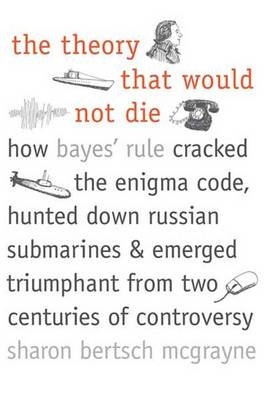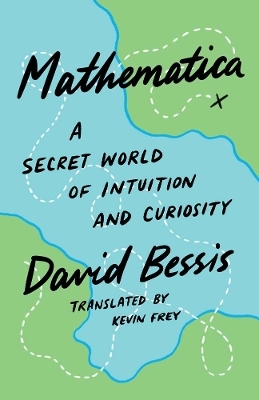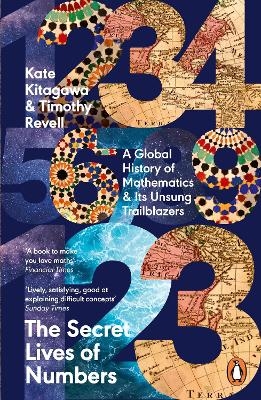
The Theory That Would Not Die
How Bayes' Rule Cracked the Enigma Code, Hunted Down Russian Submarines, and Emerged Triumphant from Two Centuries of Controversy
Seiten
2011
Yale University Press (Verlag)
978-0-300-16969-0 (ISBN)
Yale University Press (Verlag)
978-0-300-16969-0 (ISBN)
- Keine Verlagsinformationen verfügbar
- Artikel merken
Offers an account of Bayes' rule for general readers. This title explores this controversial theorem and the human obsessions surrounding it. She traces its discovery by an amateur mathematician in the 1740s through its development into roughly its modern form by French scientist Pierre Simon Laplace.
Drawing on primary source material and interviews with statisticians and other scientists, "The Theory That Would Not Die" is the riveting account of how a seemingly simple theorem ignited one of the greatest scientific controversies of all time. Bayes' rule appears to be a straightforward, one-line theorem: by updating our initial beliefs with objective new information, we get a new and improved belief. To its adherents, it is an elegant statement about learning from experience. To its opponents, it is subjectivity run amok. In the first-ever account of Bayes' rule for general readers, Sharon Bertsch McGrayne explores this controversial theorem and the human obsessions surrounding it. She traces its discovery by an amateur mathematician in the 1740s through its development into roughly its modern form by French scientist Pierre Simon Laplace.
She reveals why respected statisticians rendered it professionally taboo for 150 years - at the same time that practitioners relied on it to solve crises involving great uncertainty and scanty information, even breaking Germany's Enigma code during World War II, and explains how the advent of off-the-shelf computer technology in the 1980s proved to be a game-changer. Today, Bayes' rule is used everywhere from DNA decoding to Homeland Security. "The Theory That Would Not Die" is a vivid account of the generations-long dispute over one of the greatest breakthroughs in the history of applied mathematics and statistics.
Drawing on primary source material and interviews with statisticians and other scientists, "The Theory That Would Not Die" is the riveting account of how a seemingly simple theorem ignited one of the greatest scientific controversies of all time. Bayes' rule appears to be a straightforward, one-line theorem: by updating our initial beliefs with objective new information, we get a new and improved belief. To its adherents, it is an elegant statement about learning from experience. To its opponents, it is subjectivity run amok. In the first-ever account of Bayes' rule for general readers, Sharon Bertsch McGrayne explores this controversial theorem and the human obsessions surrounding it. She traces its discovery by an amateur mathematician in the 1740s through its development into roughly its modern form by French scientist Pierre Simon Laplace.
She reveals why respected statisticians rendered it professionally taboo for 150 years - at the same time that practitioners relied on it to solve crises involving great uncertainty and scanty information, even breaking Germany's Enigma code during World War II, and explains how the advent of off-the-shelf computer technology in the 1980s proved to be a game-changer. Today, Bayes' rule is used everywhere from DNA decoding to Homeland Security. "The Theory That Would Not Die" is a vivid account of the generations-long dispute over one of the greatest breakthroughs in the history of applied mathematics and statistics.
Sharon Bertsch McGrayne is the author of numerous books, including Nobel Prize Women in Science: Their Lives, Struggles, and Momentous Discoveries and Prometheans in the Lab: Chemistry and the Making of the Modern World. She is a prize-winning former reporter for Scripps-Howard, Gannett, Crain's, and other newspapers and has spoken at many scientific conferences, national laboratories, and universities in the United States and abroad.
| Sprache | englisch |
|---|---|
| Maße | 156 x 235 mm |
| Themenwelt | Mathematik / Informatik ► Mathematik ► Geschichte der Mathematik |
| Mathematik / Informatik ► Mathematik ► Statistik | |
| ISBN-10 | 0-300-16969-8 / 0300169698 |
| ISBN-13 | 978-0-300-16969-0 / 9780300169690 |
| Zustand | Neuware |
| Haben Sie eine Frage zum Produkt? |
Mehr entdecken
aus dem Bereich
aus dem Bereich
Das Jahrhundert, in dem die Mathematik sich neu erfand. 1870-1970
Buch | Hardcover (2022)
Heyne (Verlag)
22,00 €
a secret world of intuition and curiosity
Buch | Hardcover (2024)
Yale University Press (Verlag)
32,70 €
a global history of Mathematics & its Unsung Trailblazers
Buch | Softcover (2024)
Penguin Books Ltd (Verlag)
16,20 €


